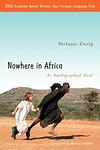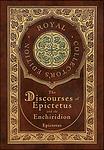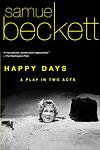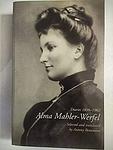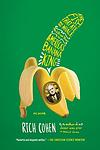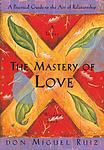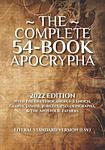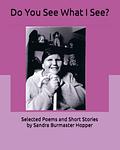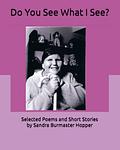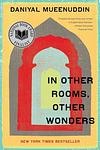The Greatest Multiple Books of All Time
Click to learn how this list is calculated.
This list represents a comprehensive and trusted collection of the greatest books. Developed through a specialized algorithm, it brings together 300 'best of' book lists to form a definitive guide to the world's most acclaimed books. For those interested in how these books are chosen, additional details can be found on the rankings page.
Genres
Countries
Date Range
Reading Statistics
Click the button below to see how many of these books you've read!
Download
If you're interested in downloading this list as a CSV file for use in a spreadsheet application, you can easily do so by clicking the button below. Please note that to ensure a manageable file size and faster download, the CSV will include details for only the first 500 books.
Download-
26. The Egyptian, Syrian, And Iraqi Revolutions by Hanna Batatu
The book provides a comprehensive analysis of the socio-political dynamics and revolutionary movements in Egypt, Syria, and Iraq throughout the 20th century. It delves into the historical context, key political figures, and socio-economic conditions that led to the uprisings and transformations in these countries. The author meticulously examines the interplay of various social classes, political parties, and external influences, offering a detailed narrative and critical insights into the mechanisms of power, resistance, and change within these Arab states.
-
27. Four Agreements : A Calendar For Wisdom And Personal Freedom by Don Miguel Ruiz
The book presents a framework for personal growth and freedom based on four fundamental principles that encourage individuals to live with integrity, love, and happiness. These agreements are: to be impeccable with your word, to not take anything personally, to not make assumptions, and to always do your best. By adopting these agreements, the book suggests that one can break free from limiting beliefs that create suffering and instead, lead a life filled with peace, grace, and empowerment. The author draws upon ancient Toltec wisdom to offer a powerful code of conduct that can rapidly transform our lives to a new experience of freedom, true happiness, and love.
-
28. Nowhere In Africa by Stefanie Zweig
"Nowhere in Africa" is not a book by Stefan Zweig, but rather a novel by Stefanie Zweig. It is an autobiographical narrative that tells the story of a Jewish family who flees Nazi Germany in the 1930s to find refuge in Kenya. The story explores their struggles and adjustments to a vastly different life on an African farm, dealing with the challenges of displacement, cultural adaptation, and the complexities of maintaining their identity amidst the backdrop of World War II. The novel delves into themes of exile, belonging, and resilience as the family navigates their new reality while yearning for the home they left behind.
-
29. Yo Yo Boing! by Giannina Braschi
This book is a groundbreaking literary piece that blends various genres, including poetry, fiction, and drama, to explore the complexities of life as a Latino/a in the United States. It presents a series of conversations, debates, and reflections that delve into the cultural and linguistic tensions experienced by the characters. The narrative is characterized by its energetic and playful use of Spanglish, the hybrid language of English and Spanish, and it addresses themes of identity, politics, and the creative process. The work is notable for its experimental structure and its vibrant portrayal of the immigrant experience, capturing the dynamic and often chaotic essence of New York City life.
-
30. Enchiridion Of Epictetus by Epictetus
The book is a concise manual of ethical advice compiled by Arrian, a student of the Stoic philosopher Epictetus. This practical guide provides philosophical teachings on how to live a virtuous life, emphasizing the importance of personal freedom and the control of one's emotions. It advocates for focusing on what is within one's power—distinguishing between what one can change and what one cannot—and stresses the significance of developing resilience to external circumstances. The text is foundational in the discipline of Stoicism, offering insights into achieving peace of mind and living in harmony with the natural world.
-
31. The Apostolic Fathers by William Wake, Edward Burton
"The Apostolic Fathers" is a compilation and analysis of early Christian writings that are attributed to the leaders directly following the Apostles, known as the Apostolic Fathers. This collection includes important texts such as the letters of Clement, the teachings of Polycarp, and the Shepherd of Hermas, among others. These writings provide valuable insights into the beliefs, practices, and organizational structures of early Christian communities. The book not only presents these texts but also offers commentary and historical context provided by the editors, helping to bridge the gap between the time of the Apostles and the later Christian church.
-
32. La Charte Du Mandé Et Autres Traditions Du Mali by Aboubakar Fofana, Jean-Louis Sagot
"La Charte Du Mandé Et Autres Traditions Du Mali" is a comprehensive exploration of the rich historical and cultural heritage of Mali, focusing on the ancient Mandé Charter, also known as the Manden Charter. This seminal text delves into the origins and implications of this 13th-century document, which is one of the earliest forms of human rights charters. The book not only examines the charter's principles of social justice, equality, and political ethics but also contextualizes it within a broader spectrum of Malian traditions, shedding light on the country's profound historical narratives and the enduring cultural practices that continue to shape its identity.
-
33. Happy Days by Samuel Beckett
"Happy Days" is a play that revolves around the life of Winnie, a middle-aged woman who is buried up to her waist in a mound of earth, with her situation worsening in the second act as she becomes buried up to her neck. Despite her predicament, Winnie maintains a sense of optimism and routine, often reminiscing about the past and engaging in one-sided conversations with her taciturn husband, Willie, who is largely invisible offstage. The play delves into themes of human resilience, the passage of time, and the search for meaning in the face of an absurd and unchanging predicament, with Winnie's relentless cheerfulness contrasted against the bleak and inexplicable situation she finds herself in.
-
34. Shadows Of Tender Fury by Subcomandante Marcos
"Shadows of Tender Fury" is a compilation of letters and communiqués written by Subcomandante Marcos, the spokesperson for the Zapatista Army of National Liberation (EZLN) in Chiapas, Mexico. The book documents the period following the 1994 Zapatista uprising, providing insights into the ideological motivations, social justice issues, and the demands for indigenous rights that define the movement. Through these writings, Marcos articulates the struggles and philosophies of the Zapatistas, blending political analysis with poetic eloquence, and offers a compelling voice in the fight against global economic inequality and for the empowerment of marginalized communities.
-
35. The Freud Reader by Sigmund Freud
"The Freud Reader" is a comprehensive anthology that provides a key selection of Sigmund Freud's most important writings, spanning the entire length of his career. Edited by a prominent Freud scholar, this collection includes complete texts of some of his most famous works, as well as excerpts from his lesser-known writings. The book is designed to give readers a clear sense of Freud's development as a thinker and writer, presenting his ideas on psychoanalysis, the unconscious mind, dreams, the theory of sexuality, and the structure of the psyche. This reader serves as an essential introduction to Freud's groundbreaking theories and his contributions to the understanding of human psychology.
-
36. The Diaries by Alma Mahler
"The Diaries" is a personal and introspective account that offers a glimpse into the life of Alma Mahler, a prominent socialite and composer in early 20th-century Vienna. Through her diaries, Alma provides a vivid portrayal of her complex relationships, her struggles and triumphs in the artistic community, and her interactions with some of the most influential artists and intellectuals of her time. The entries reveal her inner thoughts, passions, and the challenges she faced as a woman navigating her identity and desires in a male-dominated society.
-
37. The Poetic Edda by Unknown
"The Poetic Edda" is a collection of Old Norse poems from the medieval manuscript Codex Regius, which is a crucial source of Norse mythology and Germanic heroic legends. Composed by various unknown authors over centuries, the compilation includes mythological and heroic poems that explore the creation and end of the world, the exploits of gods like Odin and Thor, and the fates of heroes such as Sigurd the dragon-slayer. Rich in metaphor and ancient symbolism, these poems are fundamental to understanding the beliefs, values, and storytelling traditions of the Viking Age and have had a profound influence on later literature, art, and culture.
-
38. Six Tragedies by Seneca
"Six Tragedies" is a collection of dramatic works that delve into the darker aspects of human nature and the tragic consequences of hubris, revenge, and passion. These classical plays, written in the Roman Imperial period, reimagine ancient myths and historical events, exploring themes of power, madness, and moral corruption. The narratives often feature protagonists who face overwhelming internal and external conflicts, leading to catastrophic outcomes. The plays are notable for their intense emotional expression, philosophical insights, and the playwright's masterful use of language to probe the complexities of the human condition.
-
39. The King Of Time by Velimir Khlebnikov
"The King of Time" is a collection of avant-garde poetry and prose that delves into the themes of time, revolution, and the cosmic order through the lens of Russian Futurism. The work is characterized by its innovative use of language, bold imagery, and the exploration of new poetic forms. It reflects the author's fascination with the intersection of ancient mythologies and modern scientific concepts, as well as his belief in the transformative power of art and the artist's role in shaping the future. The pieces within the collection are marked by their rhythmic intensity and the creation of a unique linguistic universe, showcasing the author's vision of a world on the brink of monumental change.
-
40. The Art Of Love by Ovid
The book in question is a didactic poem that explores the intricacies of love and seduction from the perspective of ancient Roman society. It offers a series of instructions and advice on how to attract and retain lovers, presented in a playful and often ironic tone. The work is divided into three books, with the first two primarily addressing men and teaching them how to find, win, and keep a woman's love, while the third book is directed at women, advising them on how to secure and captivate a man's affection. Throughout the text, the author interweaves mythological references and personal anecdotes, creating a rich tapestry of amorous strategies that reflect the social and moral attitudes towards love and relationships of his time.
-
41. The Apocrypha by Unknown
"The Apocrypha" refers to a collection of ancient Jewish writings that are included in some versions of the Bible, particularly in the Septuagint and the Latin Vulgate, but are not considered canonical by all Jewish and Christian traditions. These texts include a variety of genres such as historical narratives, wisdom literature, additions to canonical books, and apocalyptic visions. They provide valuable insights into Jewish thought and practice during the Second Temple period and are revered in some Christian denominations for their historical and spiritual significance, despite their varying levels of acceptance across different religious communities.
-
42. Selected Poems by Boris Pasternak
This collection of poetry offers a rich tapestry of the author's lyrical and philosophical musings, reflecting his deep engagement with nature, love, and the tumultuous socio-political landscape of his time. The poems traverse a wide emotional and intellectual spectrum, from intimate personal experiences to grand historical narratives, all woven together with a masterful command of language and imagery. The poet's unique voice resonates throughout the anthology, revealing a profound connection to the human condition and an unyielding quest for truth and beauty amidst the complexities of the 20th century.
-
43. Selected Poems by Marina Tsvetayeva
This collection is a curated anthology of lyrical works by one of the most significant Russian poets of the 20th century, known for her passionate and vivid verse, which often delves into themes of love, isolation, and the struggle of the artist. The poems span across various periods of her tumultuous life, reflecting her experiences during the Russian Revolution, her exile in Europe, and the personal tragedies she endured. Her poetry is characterized by its intense emotionality, innovative use of rhythm, and a bold, unapologetic exploration of the human psyche, making her a unique and enduring voice in world literature.
-
44. The Eunuch by Terence
"The Eunuch" is a classic Roman comedy that revolves around the convoluted romantic pursuits of several characters in ancient Athens. The plot centers on a young man who falls in love with a courtesan and, in an attempt to win her affections, disguises his slave as a eunuch to gain access to her household. Meanwhile, his friend is also enamored with the courtesan's ward, leading to a series of misunderstandings and mistaken identities. The play humorously explores themes of love, deception, and the social mores of the time, culminating in a resolution that restores order and reconciles the characters.
-
45. Satires by Juvenal
"Satires" is a collection of poetic essays from ancient Rome that offer a scathing critique of the social and political landscape of the time. The work delves into the corruption, decadence, and moral decay of Roman society, using biting wit and a satirical tone to expose the vices and follies of its citizens and leaders. The author employs a range of literary devices, from irony to hyperbole, to lambast the greed, hypocrisy, and depravity he perceives, while also reflecting on human nature and the challenges of living a virtuous life amidst widespread societal failings. The text is not only a commentary on the specific historical context but has also been interpreted as a timeless exploration of the human condition.
-
46. Reminiscences Of Tolstoy, Chekhov, And Andreev by Maxim Gorky
This book is a collection of personal memories and impressions by a prominent Russian author who had the opportunity to interact closely with three of the most illustrious literary figures of his time. Through a series of vivid anecdotes and reflective observations, the author offers intimate insights into the personalities, philosophies, and daily lives of these great writers. His narrative not only sheds light on their creative processes and the milieu in which they worked but also humanizes these larger-than-life figures, revealing their quirks, their passions, and their interactions with the world around them. The work stands as a significant historical document, capturing the essence of an era in Russian literature and the enduring spirits of its most celebrated contributors.
-
47. The Rope by Plautus
"The Rope" is a classic Roman comedy that revolves around the mishaps and misunderstandings that ensue when a young man's plan to rescue his lover from a life of servitude goes awry. The play humorously depicts the lengths to which characters will go for love and freedom, featuring a cast of cunning slaves, mistaken identities, and a twist of fate. As the plot unfolds, the young man's father becomes entangled in the scheme, leading to a series of comic situations that culminate in an unexpected resolution. The work is a testament to the enduring nature of farce and the skillful use of dramatic irony to entertain and engage the audience.
-
48. In Other Rooms, Other Wonders by Daniyal Mueenuddin
"In Other Rooms, Other Wonders" is a collection of interconnected short stories that delve into the lives of various characters connected to a wealthy landowner in Punjab, Pakistan. The narrative spans different levels of society, from the landowner himself to his managers, servants, and peasants, weaving a tapestry of tales that reveal the complexities of power, influence, and relationships in Pakistani society. Each story explores themes of love, betrayal, and social mobility, offering a poignant look at the struggles and aspirations of individuals trying to navigate a world governed by tradition and changing socio-economic landscapes.
-
49. A Month And A Day by Ken Saro-Wiwa
"A Month and a Day" is a poignant memoir that recounts the personal and political struggles of an environmental and human rights activist in the Niger Delta region of Nigeria. The author details his non-violent fight against the ecological destruction and economic exploitation wrought by multinational oil companies and the Nigerian government. His narrative provides an intimate glimpse into his dedicated activism, the resulting political imprisonment, and the broader socio-political issues facing his community. Through his eyes, readers gain insight into the complex interplay between environmental degradation, ethnic and economic tensions, and the relentless pursuit of justice and sustainability.
-
50. Japanese Philosophy by John C. Maraldo, Thomas P. Kasulis, James W. Heisig
This book provides a comprehensive overview of Japanese philosophy, exploring its unique characteristics and its evolution through history. It delves into the diverse intellectual traditions of Japan, including both well-known philosophical schools and lesser-known but equally significant ideas. The text examines how Japanese philosophy has been influenced by and has interacted with other philosophical traditions, particularly Western philosophy, while also highlighting its distinct approach to fundamental philosophical issues such as ethics, aesthetics, and the nature of reality. Through a detailed analysis, the book offers insights into how Japanese philosophical thought has contributed to broader philosophical discourse and how it reflects the cultural and historical context of Japan.
Reading Statistics
Click the button below to see how many of these books you've read!
Download
If you're interested in downloading this list as a CSV file for use in a spreadsheet application, you can easily do so by clicking the button below. Please note that to ensure a manageable file size and faster download, the CSV will include details for only the first 500 books.
Download
